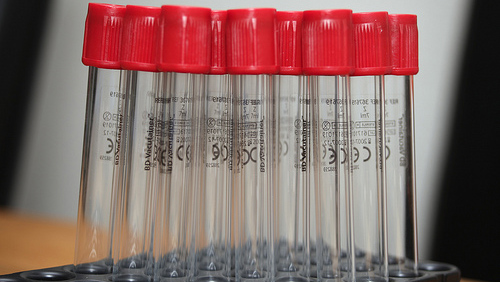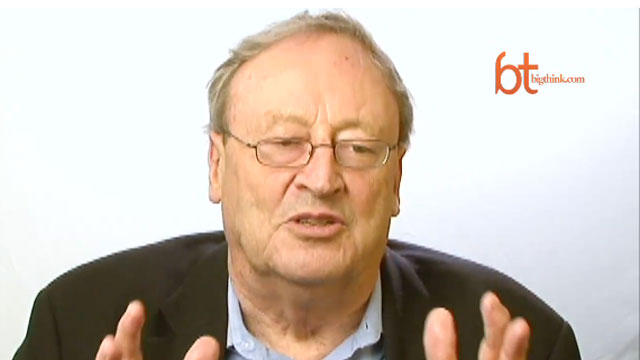Surprising Science
All Stories
There is more evidence of how similar humans are to our primate cousins: a new study from Japan has revealed that monkeys love watching television, especially circus acrobatics.
“‘Wicked Lasers’ new handheld super laser could threaten human existence and the world as we know it, according to the manufacturer,” says the Christian Science Monitor.
“Researchers determined that the lunar water likely originated early in the moon’s formation history, suggesting that it is, in fact, native to the moon,” reports the Christian Science Monitor.
Although this week is Homeopathy Awareness Week, Edzard Ernst at The Guardian finds the medical practice more threatened than ever as scientific establishments attack its medicinal claims.
“Fossilized corals and lasers beamed at a receding moon have revealed that over the ages the length of time it takes Earth to spin once on its axis has increased significantly.”
“A Japanese space probe has landed in the Australian outback after a seven-year voyage to an asteroid, safely returning a capsule containing a unique sample of dust,” says Reuters.
“There are signs that technologists are waking up to the benefits of minimalism,” says The Economist amidst a technology culture that values as many new features as possible.
Should a new term be introduced to define a class of foods of higher quality than “organic”? Some growers say “authentic food” would eliminate undue corporate influence over food production.
Over the last 20 years, the number of science and technology jobs in America has grown by about 4.2 percent per year—yet the availability of qualified U.S.-born workers in those […]
People who are consistently deprived of sleep are more likely to think that others are intentionally trying to deprive them of happiness than their well rested counterparts.
German scientists recently ran four experiments showing that superstitious people performed better at their assigned tasks because they believed luck was on their side.
M.I.T. Professor Bill Mitchell , the director of the university’s Smart Cities research group, died yesterday after a battle with cancer, according to posts on CaringBridge and BoingBoing. When Big […]
After decades of research and testing, oncologists have found treatments that demonstrably prolong the life of patients with melanoma, lung cancer and leukemia.
Catherine Asaro, the bestselling science-fiction author, uses concepts from physics and math to inform the fantastical stories of her characters. In a recent interview with Big Think, Asaro describes how […]
The L.A. Times takes aim at Apple in its editorial, saying the “bare-knuckled competitiveness” that helped it ascend may now be a liability.
With Asia expected to overtake Europe in pharmaceutical sales, researchers are focusing on the predominant diseases, and the medicines most likely to work, in emerging markets.
Worried that Twitter is shrinking attention spans, search engines lowering intelligence? Steven Pinker reassures us that I.T. is actually keeping us smart.
I.T. is waking up to the benefits of minimalism thanks to feature fatigue among consumers and strong demand from less affluent consumers in the developing world.
Forty percent of the world doesn’t use toilets, says UNICEF, resulting in disease carried by dust and flies and contaminated food and water supplies — the toll is 2 million dead annually.
Among children whose parents consistently use mobile devices, “feelings of hurt, jealousy and competition are widespread,” says Sherry Turkle, director of MIT’s Initiative on Technology and Self.
UCB Comedy shows what happens when someone upends a cup of joe at BP HQ. Photo credit: Flickr user TN Something Special Cakes, licensed under Creative Commons.
The potential for psychiatry to pathologize normal human behavior is under the spotlight during the ongoing revision of an official list of mental disorders.
With alleged breaches of the Nuremburg Medical Code in the news, Brian Palmer looks at whether any useful science came out of Nazi experiments on unwilling subjects.
An recent English study has found that exposure to secondhand smoke makes non-smokers more vulnerable to psychological distress and hospitalization for mental illness.
Diet, naps and exercise are three areas important to a good night’s rest, says Dr. Nerina Ramlakhan. Eight hours isn’t a magic number; relax and let your body determine the right amount.
Levels of testosterone in women partly determine how much they trust men, according to a Dutch study published in the U.S. The results support skepticism as an important adaptive trait.
In an effort to spice up the classroom and dodge patient privacy concerns, psychology professors are teaching pathologies of fictional characters, like Twilight’s vampire, Edward.
New companies are creating sophisticated digital backups of individuals that can, in some sense, make one immortal, even if copying consciousness remains beyond current technology.
When Jill Tarter was growing up, she remembers walking along the beach with her father, gazing up at the night sky. Well before she would become a leader in the […]
The successful launch of a private rocket into outer space, which could one day take tourists on suborbital flights, comes just as the U.S. government makes deep cuts at NASA.




